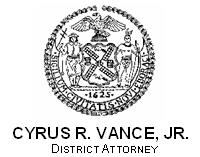
MANHATTAN DISTRICT ATTORNEY VANCE, GOVERNOR CUOMO, DISTRICT ATTORNEYS FROM AROUND THE STATE URGE PASSAGE OF PUBLIC TRUST ACT
“Just as the public needs confidence in the fairness of our criminal justice system, we also need to have faith that the men and women entrusted to do the public’s work are doing so honestly,” said District Attorney Vance. “New York’s current public corruption and government fraud are outdated, ineffective, and create hurdles that don’t exist for our federal counterparts or in many other states. Since taking office, I have advocated for laws that give state prosecutors stronger tools to investigate and prosecute corruption at all levels of government. The Public Trust Act does just that. I thank Governor Cuomo for moving on this important, bipartisan legislation, and urge lawmakers to pass it without further delay.”
The Act addresses a number of areas where relatively weak state laws have allowed behavior that corrupts and defrauds state and local governments to go unchecked. For example, the Act gives teeth to New York’s current public bribery laws, which unlike other bribery statutes, requires either a mutual agreement between the parties or that the person giving the bribe believes that the public servant will be influenced. The Act makes public bribery consistent with all other bribery statutes – requiring only evidence of an intent to influence, not a mutual agreement. The Act also, for the first time, makes it crime for any public official or employee to fail to report bribery.
Additionally, the Act gives New York state prosecutors a tool that our counterparts in other states and the federal government have had for decades – automatic use immunity in instances where a witness testifies before a grand jury investigating government fraud or misconduct in public office. Under automatic use immunity, the witness is only protected from the government using his or her testimony or information derived from that testimony, not from prosecution stemming from other sources of information.
The bill also creates the crime of “Corrupting the Government,” which would apply to ongoing schemes to defraud the state or local government, regardless of whether the perpetrator is a public servant.
The Public Trust Act also:
• Increases penalties for specific existing crimes – larceny, unauthorized use of a computer, unauthorized use of a vehicle, and money laundering – when the victim is a public entity;
• Strongly targets official misconduct by enhancing the penalty for that crime from an A misdemeanor to an E felony for violations of that statute that do not result in the actual obtaining or depriving of a benefit;
• Increases fines levied to up to three times the amount of the defendant’s gain for the crime of corrupting the government;
• Bars an individual convicted of bribery, official misconduct, or public corruption from registering as a lobbyist or serving in civil service; and
• Disqualifies individuals and corporate offenders from bidding on and obtaining state contracts when convicted of these crimes.
